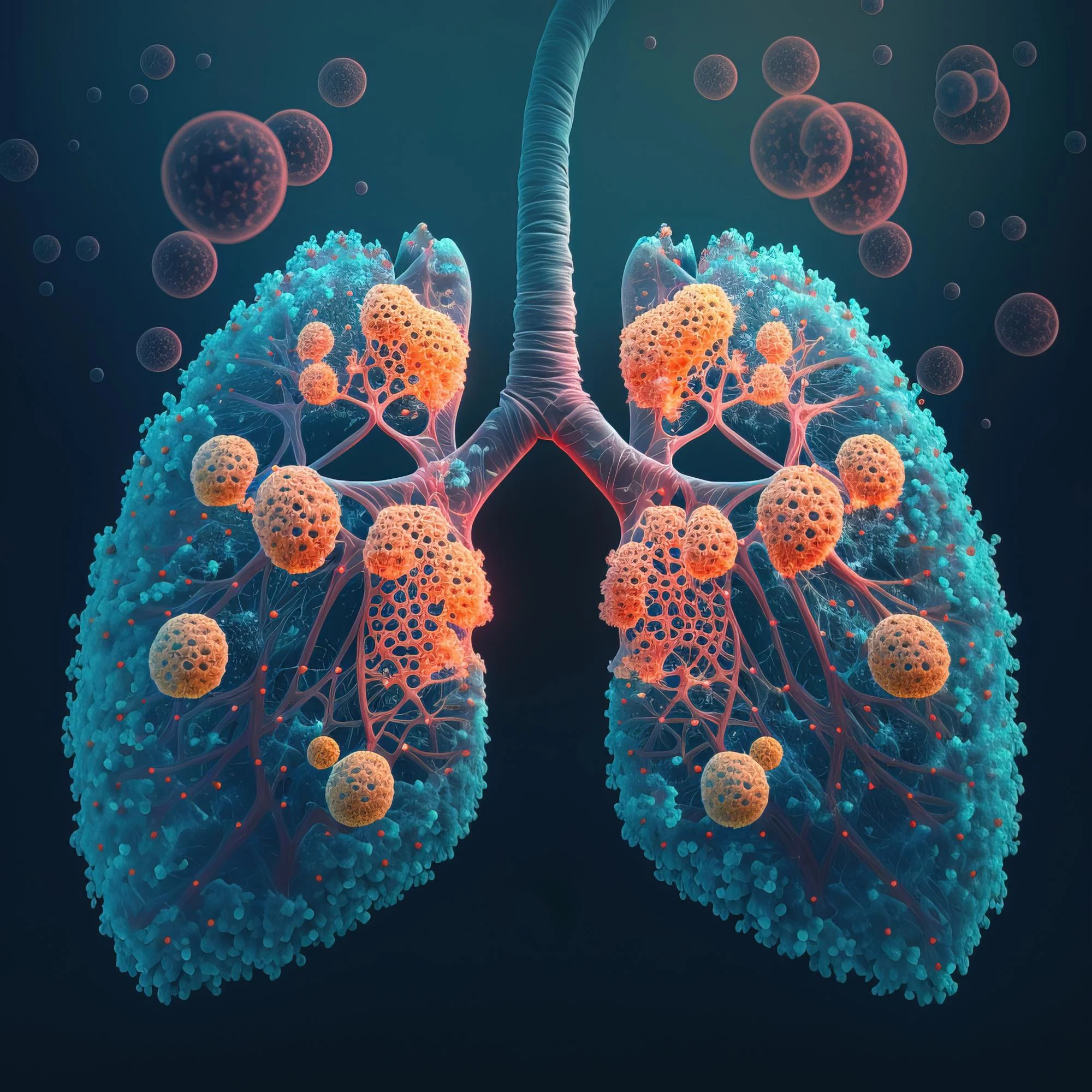Keywords
1. Advanced Non-Small Cell Lung Cancer Prognosis
2. Triglyceride Glucose-Body Mass Index (TyG-BMI)
3. TyG-BMI in Lung Cancer Survival
4. Predictors of NSCLC Outcomes
5. Non-Small Cell Lung Cancer Biomarkers
Introduction
According to breakthrough research published in Clinical Nutrition ESPEN, a higher pretreatment triglyceride glucose-body mass index (TyG-BMI) is significantly related to poor prognosis in patients with advanced non-small cell lung cancer (NSCLC). The comprehensive study, led by scientists from various prominent medical institutions in China, sheds light on the prognostic implications of TyG-BMI, a parameter that combines metabolic and obesity indexes and subsequently has the potential to redefine the risk stratification process in advanced NSCLC.
The Study
Conducted between 2018 and 2022, the retrospective study scrutinized the medical records of 426 patients diagnosed with advanced NSCLC. TyG-BMI values were calculated based on the serum triglyceride, fasting plasma glucose, and body mass index measurements taken at diagnosis. Researchers propelled the study forward with the application of Cox proportional hazards regression models to assess the impact of TyG-BMI on progression-free survival (PFS) and overall survival (OS)—both pivotal measures in the clinical outcome of cancer patients.
Results and Interpretation
During a median follow-up period spanning 899 days, it became apparent that patients positioned in the highest tertile of TyG-BMI faced significantly worse outcomes. To be precise, they encountered an increased risk of mortality (hazard ratio [HR]: 1.85; 95% confidence interval [CI]: 1.21-2.80; P = 0.001) as well as shortened periods without disease progression (HR: 2.10; 95% CI: 1.40-3.10; P < 0.001). The detrimental impact per standard deviation increase in TyG-BMI equated to a 10% reduction in OS and a 14% reduction in PFS.
Interestingly, the study discerned that this deleterious association assumes even greater importance among specific subgroups. Both cigarette smokers and individuals with heightened C-reactive protein (CRP) levels—markers of systemic inflammation—were markedly more susceptible to poor outcomes correlated with increased TyG-BMI.
The Implications
The findings have momentous implications. First, they underscore the importance of TyG-BMI as a critical biomarker that clinicians can potentially harness to better predict the trajectory of advanced NSCLC. Notably, it could be instrumental in identifying patients at higher risk of rapid disease progression and mortality who might benefit from more aggressive treatment regimens or closer monitoring.
Second, the study highlights the intricate interplay between metabolic health and cancer progression, suggesting that systemic metabolic abnormalities could deleteriously influence tumor biology.
Challenges and Future Perspectives
Despite the solid statistical backbone of this study, it is essential to approach the interpretation of results with an understanding of its retrospective nature. Prospective trials and replication studies are warranted to corroborate these findings and ensure that the observed associations hold in different populations and clinical settings.
Future research may delve into the mechanisms underlying the deleterious influence of high TyG-BMI on NSCLC outcomes and explore whether interventions targeting metabolic health can alter the course of the disease.
References
1. Guo, S., Zhao, Y., Jiang, Y., Ye, H., & Wang, Y. (2024). Increased pretreatment triglyceride glucose-body mass index associated with poor prognosis in patients with advanced non-small cell lung cancer. Clinical Nutrition ESPEN, 59, 412–421. https://doi.org/10.1016/j.clnesp.2023.12.018
2. Lee, D. Y., Lee, M. Y., Sung, K. C. (2019). Predictive value of triglyceride glucose index for the risk of incident diabetes: A 4-year retrospective longitudinal study. PLoS ONE, 14(9), e0221773. https://doi.org/10.1371/journal.pone.0221773
3. Suh, S., Park, M. K. (2018). Metabolic stress and inflammatory markers in patients with metabolic syndrome. The Korean Journal of Internal Medicine, 33(2), 283–289. https://doi.org/10.3904/kjim.2016.272
4. Wang, X., Liu, J., Ouyang, Y., Fang, M., Gao, H., & Liu, L. (2020). The Biomarkers for Immunotherapy in Non-Small Cell Lung Cancer: From Traditional Prognostic Factor Review to Recent Advances in Proteomics. Cell & Bioscience, 10, 64. https://doi.org/10.1186/s13578-020-00424-0
5. Irwin, M. L., Mayne, S. T. (2011). Impact of nutrition and exercise on cancer survival. Cancer Journal, 17(4), 233–241. https://doi.org/10.1097/PPO.0b013e3182250dd3
Conclusion
The study published in Clinical Nutrition ESPEN points to an ominous association between high pretreatment TyG-BMI and inferior survival outcomes in patients with advanced NSCLC. This revelation not only aids in the identification of patients with an especially dire prognosis but also necessitates a renewed focus on metabolic health as a pivotal component in cancer care protocols. The synergy between metabolic dysregulation and lung cancer progression offers clinicians a vantage point from which to develop more nuanced and potentially life-extending approaches to therapy, making the quest for understanding and utilizing biological markers like TyG-BMI critical in the fight against NSCLC.
